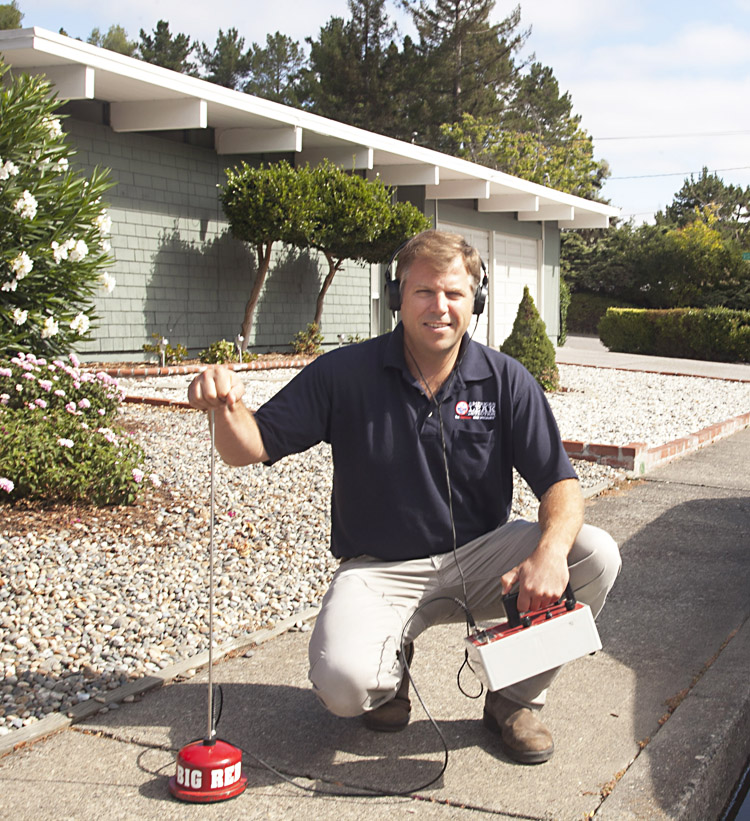Advances in Leak Detection Born From Rock and Roll
 |
|
|
While you may not often think of the Grateful Dead at the same time you're pondering the soundness of your radiant heat system, one man's career path makes a direct link between the two. While chatting with the guys at American Leak Detection recently, I learned that they're working with a former Dead sound engineer, Charlie Butten, to develop new audio tools for finding elusive hidden leaks.
As ALD's Christian Macaulay explained, basic leak-hunting techniques have remained the same, in some cases since the 19th century, when technicians would amplify the sound of pipes in the walls through a simple cone. Leak finders today still use audio tools to listen for the telltale hiss, as well as small video cameras to try to see inside the system, and electrical signals to trace pipes, as I learned several years ago while reporting this feature on leak detection.
But advances in technology over the last few years have made those tools smaller, more sensitive, and more precise than ever before. Leak hunters use newly sensitive audio filters to pinpoint sounds in different kinds of pipe that were once impossible to find. Their video cameras can fit into a half-inch pipe. The infrared systems that can detect hot water spilling into a wall or floor now go for $3,000 whereas they used to go for $30,000, Macaulay explained.
"The listening device has been the cornerstone since the 1800s when they used to put a horn up against the wall to hear the pipes," Macaulay said. And those devices continue to evolve dramatically.
That's thanks in part to Butten, who helped pioneer modern rock and roll sound systems as a touring audio engineer in the 60s. Butten co-founded the audio hardware company Clear-Com, and won an Emmy for creating the Belt Pack intercom system.
These days, he's working in the distinctly less glamorous (though no less important) world of leak detection. But while it may be far from the lights of the Fillmore, Butten's work creating audio tools to discover the most subtle leak sounds is no less groundbreaking.
"Our leak detectors were already the most sensitive that we're aware of. But he made them so much better, with his understanding of the electronics and being able to go back in and redesign and change some of the things in what was already a great leak detector," ALD's Hillel Salomon said. The company uses a detector Butten designed, called the XLP99. And Salomon and Macaulay said they're working with Butten to develop even more advanced audio technology.
"This guy is trying to take it to the next level, where he can get stereoscopic microphones, put them on two pipes, and download that data to your iPhone to be able to tell you where that leak is on that section of pipe," Macaulay said.
But even with these technological advancements, Macaulay pointed out that leak detection requires a trained ear, which can only come with time. "Sometimes it sounds like bubbles, sometimes it sounds like a hiss, sometimes it's a chirp. It takes years to attune your ears to it. It's an acquired skill that takes many years to hone."
And with the help of people like Charlie Butten, there's always more to hear, learn, and finally repair.
- ‹ previous
- 23 of 677
- next ›




